Evidence-Based Body Benefits & Uses Of Coconut Oil
Types of Coconut Oil
The many coconut oil benefits are only available with a good quality product. There are a few types of coconut oil that you should be aware of, including the following: Virgin Coconut Oil: Virgin coconut oil is the least refined and most beneficial. It’s made with copra, or dried coconut meat, that’s removed from the shell and pressed to extract the natural oils. Virgin coconut oil typically has a great nutty and sweet flavour. Within the virgin coconut oil category, you’ll see the oil that’s been produced using a “wet-milling” method, which means that it’s extracted from fresh coconut meat, and oil that’s been produced with a dry method, as dried copra is used instead.
Sometimes you’ll see “extra-virgin coconut oil,” but there really is no a difference between virgin and extra-virgin when it comes to coconut oil, so either option is a great choice.
Refined Coconut Oil: Refined coconut oil has gone through a refining process that involves bleaching and deodorizing the oil.
Unlike virgin coconut oil, refined oils don’t have a noticeable coconut taste or aroma.
Refined coconut oils are not recommended because many of them are made with high temperatures and harsh chemicals, both of which can destroy the oil’s beneficial antioxidants.
Within the virgin coconut oil category, you’ll see the oil that’s been produced using a “wet-milling” method, which means that it’s extracted from fresh coconut meat, and oil that’s been produced with a dry method, as dried copra is used instead.
Sometimes you’ll see “extra-virgin coconut oil,” but there really is no a difference between virgin and extra-virgin when it comes to coconut oil, so either option is a great choice.
Refined Coconut Oil: Refined coconut oil has gone through a refining process that involves bleaching and deodorizing the oil.
Unlike virgin coconut oil, refined oils don’t have a noticeable coconut taste or aroma.
Refined coconut oils are not recommended because many of them are made with high temperatures and harsh chemicals, both of which can destroy the oil’s beneficial antioxidants.
All-Purpose Skin Care Aid:
Did you know that coconut oil works great for skin? According to a 2018 study published in the International Journal of Molecular Science on the effects of plant oils on the skin, coconut oil is found to be rich in antibacterial, anti-ageing, antioxidant, and anti-inflammatory properties.
 It may also aid in treating various skin problems that include the following:
It may also aid in treating various skin problems that include the following:
- Eczema & Psoriasis: The topical application of virgin coconut oil can reduce the severity of these conditions.
- UV Radiation: Research suggests that the use of coconut oil protects the skin against the harmful effects of UV rays.
- Dermatitis: A study published in Evidence-Based Complementary and Alternative Medicine suggests that coconut oil is effective in relieving symptoms of atopic dermatitis (as compared to mineral oil). This was backed up by another study published in the International Journal of Dermatology which found that virgin coconut oil is more beneficial than mineral oil-based formulations when treating children suffering from mild to moderate atopic dermatitis.
- Skin Wound: Virgin coconut oil helps to speed up wound healing given its indicated skincare properties.
- Xerosis or Dry Skin: Research shows that coconut oil is a safe and effective moisturizer for the skin. Pure cold-pressed, organic, non-GMO coconut oil is an excellent massage oil that can be used for all types of skin, including dry skin.
- Antimicrobial Activity: Monolaurin is an active component of coconut oil found to be antibacterial, antiviral, and antifungal in nature. It protects against the harmful effects of bacteria, such as Staphylococcus aureus that causes pimples and other skin infections.
- Burns: Use of coconut oil helps in providing relief from burns.
- Other: It also helps repair the skin barrier.
Promotes Healthy Hair:
Coconut oil is used extensively in the tropical, coastal regions for haircare. Many women apply the oil regularly for thick lustrous hair.
This thick, butter-like oil helps in the healthy growth of your hair and gives a shine to those strands. A study published in the Journal of Cosmetic Science found compared coconut oil to other oils like sunflower and mineral oils. Of the three, coconut oil was the only oil that reduced protein loss when used as a pre-wash or post-wash product. This held true for both damaged and undamaged hair. Due to low molecular weight, it is able to penetrate the hair shaft and prevent hair damage. This is one of the reasons why it is used as a hair care oil, and in the manufacturing of various conditioners and dandruff-relief creams.
The best variety for healthy hair is organic extra virgin coconut oil. Just apply it topically to your hair or use a coconut oil hair mask.
Worried about damaged hair? Again coconut oil is one solution. It is an excellent conditioner and helps the re-growth process of damaged hair.
It also provides the essential proteins required for nourishing and healing damaged hair. Another research published in the Journal of Cosmetic Science indicates that coconut oil provides better protection to hair from damage caused by too much moisture.
By regularly massaging your head with it, you can ensure that your scalp is dandruff free, even if your scalp is chronically dry. It also helps in keeping your hair and scalp free from lice infestation.
This is one of the reasons why it is used as a hair care oil, and in the manufacturing of various conditioners and dandruff-relief creams.
The best variety for healthy hair is organic extra virgin coconut oil. Just apply it topically to your hair or use a coconut oil hair mask.
Worried about damaged hair? Again coconut oil is one solution. It is an excellent conditioner and helps the re-growth process of damaged hair.
It also provides the essential proteins required for nourishing and healing damaged hair. Another research published in the Journal of Cosmetic Science indicates that coconut oil provides better protection to hair from damage caused by too much moisture.
By regularly massaging your head with it, you can ensure that your scalp is dandruff free, even if your scalp is chronically dry. It also helps in keeping your hair and scalp free from lice infestation.
Health Benefits:
Immune System Boost (Antibacterial, Antifungal and Antiviral):
Coconut oil contains lauric acid (monolaurin), which has shown to reduce candida, fight bacteria and create a hostile environment for viruses. Many diseases today are caused by the overgrowth of bad bacteria, fungi, viruses and parasites in the body. You can replace grains and sugar in your diet with coconut oil as your natural fuel source when you’re sick. Sugar feeds the growth of bad bacteria. Instead, take one tablespoon of coconut oil three times daily when sick, and consume plenty of vegetables and bone broth as well.Improves Digestion and Reduces Stomach Ulcers and Ulcerative Colitis:
Coconut also improves digestion as it helps the body absorb fat-soluble vitamins, calcium and magnesium. If coconut oil is taken at the same time as omega-3 fatty acids, it can make them twice as effective, as they are readily available to be digested and used by the body. Coconut oil can help improve bacteria and gut health by destroying bad bacteria and candida. Candida imbalance, in particular, can decrease stomach acid, which causes inflammation and poor digestion. All this together means coconut oil benefits digestive health and helps treat or prevent stomach ulcers and ulcerative colitis.Coconut Oil for Weight Loss:
Because of the energy-creating abilities of coconut oil and the fact it’s a no-carb oil, it is no wonder that it is beneficial in losing weight. It helps burn fat and calories, decrease appetite, and in studies it was especially helpful in losing belly fat. Coconut’s ability to help you shed fat has been well-established. A 1985 study published in the Journal of Toxicology and Environmental Health proved that a single injection of capric acid resulted in “initially rapid, then gradual decrease in food consumption and a parallel loss of body weight” in male rats. It might seem counterintuitive to assume that eating coconut oil (a fat) will contribute to fat loss, but it is actually quite logical. The key to understanding this phenomenon lays in the multidimensional ability of the MCFAs to control a variety of physiological processes. For example, in the 1985 study mentioned above, it was discovered that capric acid shows significant improvements in thyroid function, helps lower resting heart rate and assists your body in burning fat for energy.
More recently, the Obesity Research Journal published a study from Boston University Medical School that gives us a clue why MCFAs have fat-burning ability.
Testing the effects that MFCAs have on fat breakdown, adipose (fatty) cells in rats were pretreated with caprylic acid. They observed that fat breakdown occurred at such a significant level that it literally mimicked the characteristics of fasting.
Fasting, in this sense, is not to be regarded as negative, but positive in that the body uses its energy reserves most effectively and speeds up the breakdown of needless fat reserves.
In the words of the researchers who conducted this study, “Such changes could contribute, in part, to weight loss in animals and humans associated with dietary medium-chain fatty acids.”
For example, in the 1985 study mentioned above, it was discovered that capric acid shows significant improvements in thyroid function, helps lower resting heart rate and assists your body in burning fat for energy.
More recently, the Obesity Research Journal published a study from Boston University Medical School that gives us a clue why MCFAs have fat-burning ability.
Testing the effects that MFCAs have on fat breakdown, adipose (fatty) cells in rats were pretreated with caprylic acid. They observed that fat breakdown occurred at such a significant level that it literally mimicked the characteristics of fasting.
Fasting, in this sense, is not to be regarded as negative, but positive in that the body uses its energy reserves most effectively and speeds up the breakdown of needless fat reserves.
In the words of the researchers who conducted this study, “Such changes could contribute, in part, to weight loss in animals and humans associated with dietary medium-chain fatty acids.”
Tags:


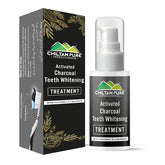

![Red Onion Oil 🧅 Reduces Hair Fall & Accelerates Hair Regrowth [پیاز کا تیل].. Trending.... 🔥 - ChiltanPure](http://chiltanpure.com/cdn/shop/products/red-onion-oil-reduces-hair-fall-amp-accelerates-hair-regrowth-piaz-ka-til-trending-394813_165x.jpg?v=1707464619)
![Red Onion Oil 🧅 Reduces Hair Fall & Accelerates Hair Regrowth [پیاز کا تیل].. Trending.... 🔥 - ChiltanPure](http://chiltanpure.com/cdn/shop/products/red-onion-oil-reduces-hair-fall-amp-accelerates-hair-regrowth-piaz-ka-til-trending-329640_165x.jpg?v=1708127491)
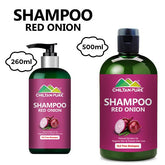

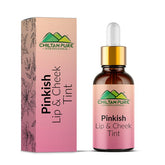

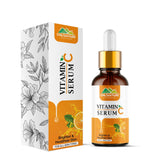

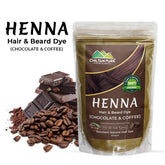

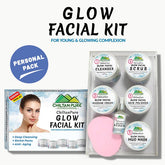

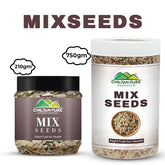

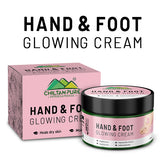


Leave a comment
Please note, comments need to be approved before they are published.